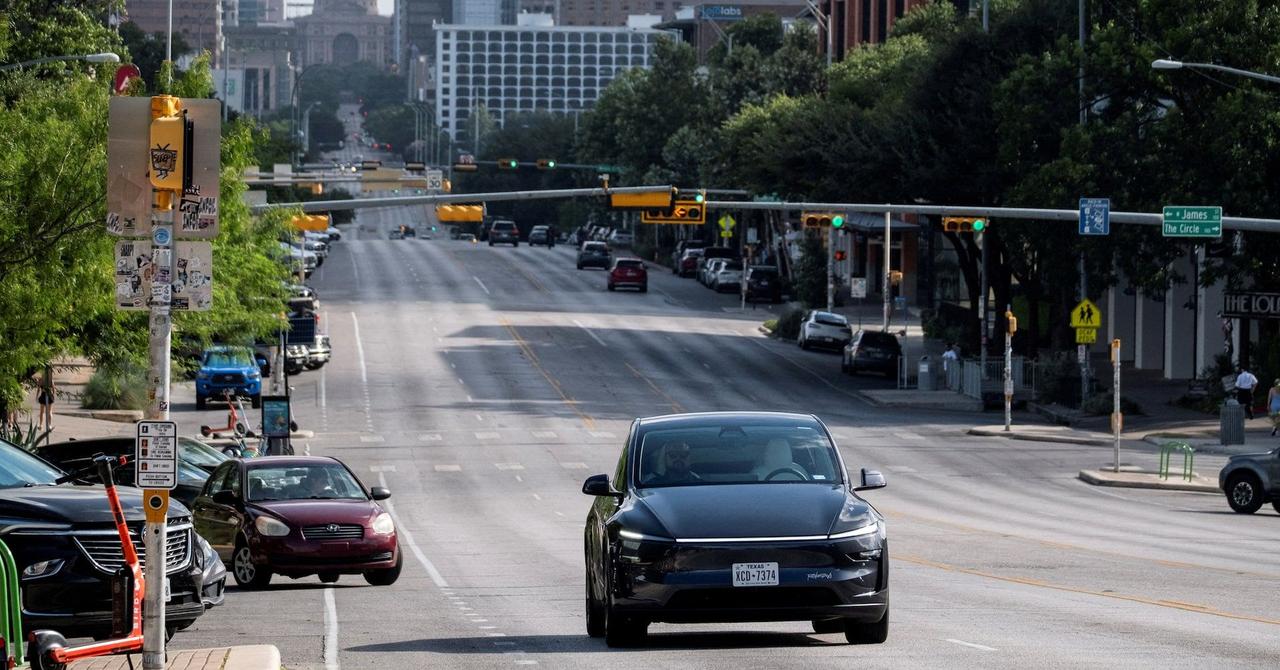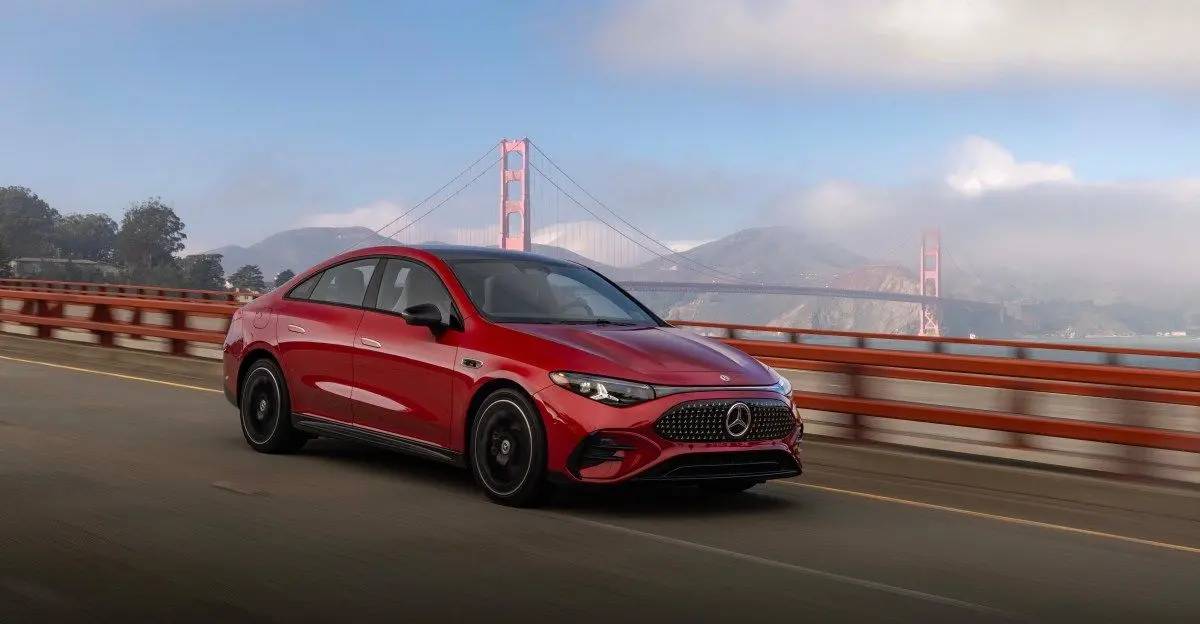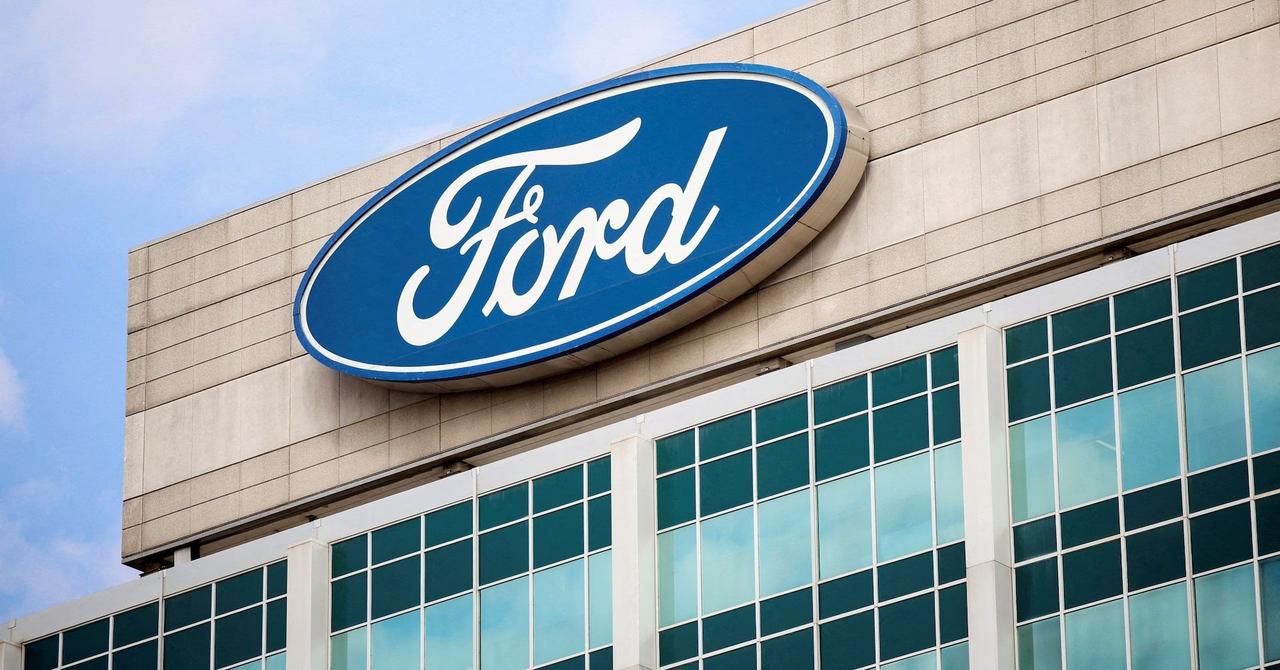Ford CEO Favors Waymo's LiDAR Approach Over Tesla's Camera-Only System for Autonomous Driving
3 Sources
3 Sources
[1]
'We really believe that Lidar is mission critical': Ford CEO says Waymo's self-driving car tech makes more sense Tesla's
Jim Farley expresses skepticism about Tesla's approach to autonomous driving Ford CEO Jim Farley has said that he believes LiDAR is "mission critical" to any autonomous driving system and that when a brand like Ford explores the technology, it has "to be really careful" in its approach. Speaking at the Aspen Ideas Festival last week, Farley was pushed by Elon Musk biographer Walter Isaacson to compare both Tesla's and Waymo's current autonomous driving systems, asking which approach made most sense. Farley's response was "to us, Waymo," according to Fortune, as he went on to explain that Waymo had made a "lot of progress" in the area of self-driving. In stark contract to Waymo's approach, which in its current sixth generation sees a suite of 13 cameras, 4 LiDAR, 6 radar, and an array of external audio receivers act as its eyes and ears, Tesla uses a network of just eight cameras to give it vehicles a 360-degree view of surroundings. Elon Musk has long been an advocate of a "camera-only" approach to autonomous driving technology, calling LiDAR "lame" during an autonomy day in 2019 and subsequently removing sensors from his cars, instead opting to refine his camera technology and software in an attempt to streamline the manufacturing process and reduce costs. "The issue with Waymo's cars is it costs way more money," Musk explained during Tesla's quarterly earnings call in April. "The car is very expensive, made in low volume. Teslas probably cost 25% or 20% of what a Waymo costs and made in very high volume." Although Ford is no longer pursuing its autonomous driving joint venture with Volkswagen (dubbed Argo AI), it has continued to develop its own BlueCruise technology, which takes cruise control a step further by allowing drivers to take their hands off the wheel when certain driving criteria is met. Elon Musk believes that Artificial Intelligence has improved at such a rate that the need for bulky and expensive LiDAR, ultrasonic and camera technology isn't required for the highest levels of autonomous driving. But so far, his robotaxi business has only been seen on public roads with a safety operator in the passenger seat and it is already under investigation for the alleged erratic behavior of some vehicles. Above all else, it still has some way to go before it catches up with Waymo's operation, which is already fully active in a number of US cities. Using just eight cameras, as opposed to the accomplished suite that Waymo runs, limits the amount of redundancy systems that are available. As Jim Farley points out: "where the camera will be completely blinded, the LiDAR system will see exactly what's in front of you." Building a failsafe and reliable autonomous driving system is the only way to build public trust in the technology. Once at that point, companies should then look at ways of improving technology and reducing costs, rather than rushing to cut corners.
[2]
Ford CEO Jim Farley says Waymo's approach to self-driving makes more sense than Tesla's
The comments are the latest indication of the auto industry's resistance to Tesla CEO Elon Musk's vision of less expensive self-driving vehicles that use only video cameras and artificial intelligence -- a bet Musk believes will ultimately pay off and prompt other automakers to license Tesla's technology. But Ford, the number three automaker in the U.S., which plans to work with partners to incorporate self-driving technology into its future vehicles, does not seem likely to license Tesla's tech anytime soon, based on Farley's comments on Friday. "When you have a brand like Ford, when there's a new technology, you have to be really careful," Farley said at the Aspen Ideas Festival on Friday. "We really believe that LiDAR is mission critical," Farley said, referring to the laser sensors used by companies like Waymo. Farley was being interviewed by Walter Isaacson, who published a biography on Elon Musk in 2023. When their conversation turned to autonomy, Isaacson asked Farley to compare both Waymo and Tesla's systems, and he asked which approach made more sense. "To us, Waymo," Farley said. He pointed out that both Waymo, owned by Google-parent Alphabet, and Tesla "have made a lot of progress" on self-driving, and Farley acknowledged that he has had conversations with Elon Musk. But he stated that Ford considered LiDAR to be an important part of the picture, noting that "where the camera will be completely blinded, the LiDAR system will see exactly what's in front of you." Tesla, which recently launched its robotaxi service in Austin -- with safety riders in the front seat -- has famously taken a "camera-only" approach to its autonomous technology, meaning that it doesn't use radar or LiDAR technology to "see" the environment around the car. This approach has drawn scrutiny across the industry from people who question whether it is as safe without the redundancies, even as Musk argues that it's more economical and performs just as well "The issue with Waymo's cars is it costs way more money," Musk said during Tesla's quarterly earnings call in April. "The car is very expensive, made in low volume. Teslas probably cost 25% or 20% of what a Waymo costs and made in very high volume." Ford has said it plans to partner with a self-driving software company once the technology is farther along. While the company had spent $1 billion pursuing its own joint venture with Volkswagen, called Argo AI, Ford stopped funding the effort in 2022 and decided to pursue a partnership model. In the meantime, the company has shifted attention to its "BlueCruise" technology, a so-called Level 2 self-driving system that allows drivers to take their hands off the wheel on the highway but requires full attention. Ford is still working on developing a more advanced system, which will allow drivers to not pay attention during certain times on the highway -- but it has said it no longer has intentions to build a fully autonomous, Level 4 system, only plans to partner with other companies who have. "We decided, as a company, that a cooler problem than full autonomy in an urban setting was high speed, eyes off. Push a button and read a book in your car," Farley said.
[3]
Ford CEO Jim Farley Believes Waymo's Approach Makes More Sense Than Elon Musk-led Tesla's: 'When You Have A Brand Like Ford... You Have To Be Really Careful' - Alphabet (NASDAQ:GOOG), Ford Motor (NYSE:F)
Ford Motor Co. F CEO Jim Farley voiced skepticism about Tesla Inc.'s TSLA autonomous driving strategy, underscoring the necessity of consumer trust and prudence. What Happened: During the Aspen Ideas Festival, Farley emphasized the potential of laser sensor systems, such as those employed by Alphabet Inc.'s GOOG GOOGL Waymo, according to Fortune. In a conversation with Walter Isaacson, Farley compared the systems of Waymo and Tesla, expressing a preference for Waymo's approach. "When you have a brand like Ford, when there's a new technology, you have to be really careful," he said. Farley highlighted the critical role of LiDAR, a technology used by companies like Waymo in self-driving vehicles. Farley stated, "We really believe that LiDAR is mission critical." He acknowledged the advancements of both companies but emphasized Ford's belief in the importance of LiDAR, noting its capability to detect obstacles that cameras might overlook. "We decided, as a company, that a cooler problem than full autonomy in an urban setting was high speed, eyes off. Push a button and read a book in your car," Farley said. Tesla, which employs a camera-only strategy for autonomous driving, recently introduced a robotaxi service in Austin. This approach has faced scrutiny within the industry, although Elon Musk argues it is cost-effective. Meanwhile, Ford plans to collaborate with self-driving software firms as technology progresses, focusing on its "BlueCruise" Level 2 system. See Also: Elon Musk Reacts After Tesla Completes Autonomous Delivery Of Model Y: From Factory To Customer Home Across Town, Through Highways Why It Matters: Ford's decision to prioritize LiDAR technology over Tesla's camera-only approach highlights a significant divergence in strategies within the autonomous vehicle industry. Tesla's production costs for vehicles are reportedly just "1/7" of Waymo's, and this cost efficiency allows Tesla to deploy more vehicles on the road, potentially accelerating its path to full autonomy. Furthermore, Tesla's robotaxi service, which recently launched in Austin, is considered to have a major advantage over competitors like Waymo and Zoox. Gary Black of The Future Fund LLC highlighted that every Tesla robotaxi is factory-ready, giving it a significant edge in the market. Despite the differing approaches, Tesla's safety record is noteworthy. Social Capital CEO Chamath Palihapitiya pointed out that Tesla's crash rates are significantly lower than the national average, making it an ideal choice for teenage drivers. Check out more of Benzinga's Future Of Mobility coverage by following this link. Read Next: Tesla Launches Robotaxi In Austin: Elon Musk Calls It A 'Culmination Of A Decade Of Hard Work' Disclaimer: This content was partially produced with the help of AI tools and was reviewed and published by Benzinga editors. Photo courtesy: Sundry Photography / Shutterstock.com FFord Motor Co$10.781.41%Stock Score Locked: Edge Members Only Benzinga Rankings give you vital metrics on any stock - anytime. Unlock RankingsEdge RankingsMomentum35.26Growth65.81Quality73.58Value89.42Price TrendShortMediumLongOverviewGOOGAlphabet Inc$178.222.17%GOOGLAlphabet Inc$178.132.64%TSLATesla Inc$322.71-0.94%Market News and Data brought to you by Benzinga APIs
Share
Share
Copy Link
Ford CEO Jim Farley expresses preference for Waymo's LiDAR-based autonomous driving technology over Tesla's camera-only approach, citing safety and reliability concerns.
Ford CEO Endorses LiDAR Technology for Autonomous Driving
In a recent discussion at the Aspen Ideas Festival, Ford Motor Company CEO Jim Farley expressed his preference for Waymo's approach to autonomous driving technology over Tesla's strategy. Farley emphasized the critical importance of LiDAR (Light Detection and Ranging) in self-driving systems, stating, "We really believe that LiDAR is mission critical"
1
.
Source: Fortune
The LiDAR vs. Camera Debate
Waymo, owned by Alphabet Inc., utilizes a comprehensive suite of sensors in its autonomous vehicles, including 13 cameras, 4 LiDAR units, 6 radar sensors, and external audio receivers. In contrast, Tesla relies solely on a network of eight cameras for its self-driving technology
1
.Farley highlighted the advantages of LiDAR, noting that "where the camera will be completely blinded, the LiDAR system will see exactly what's in front of you"
2
. This statement underscores the potential safety benefits of LiDAR technology in challenging driving conditions.
Source: Benzinga
Tesla's Cost-Effective Approach
Tesla CEO Elon Musk has long advocated for a camera-only approach, arguing that advancements in Artificial Intelligence have reduced the need for expensive LiDAR and other sensor technologies. Musk claims that Tesla's vehicles are significantly more cost-effective, stating, "Teslas probably cost 25% or 20% of what a Waymo costs and made in very high volume"
1
.Related Stories
Ford's Cautious Approach to Autonomous Technology
Farley emphasized the need for caution when introducing new technologies, especially for established brands like Ford. He stated, "When you have a brand like Ford, when there's a new technology, you have to be really careful"
3
.Ford has shifted its focus from developing fully autonomous vehicles to enhancing its "BlueCruise" technology, a Level 2 self-driving system that allows hands-free driving on highways while still requiring driver attention
2
.Industry Implications and Future Outlook
The divergence in approaches between Ford and Tesla highlights a significant split in the autonomous vehicle industry. While Tesla's strategy prioritizes cost-efficiency and high-volume production, Ford and other manufacturers emphasize the importance of redundancy and reliability in their systems
3
.As the industry continues to evolve, the debate between LiDAR-based and camera-only systems is likely to persist. The ultimate success of these approaches will depend on factors such as safety records, regulatory approval, and consumer trust in autonomous driving technologies.
References
Summarized by
Navi
Related Stories
Tesla vs. Waymo: Contrasting Approaches Shape the Future of Robotaxis
29 Aug 2025•Technology

Nvidia unveils self-driving AI technology to challenge Tesla in autonomous vehicle industry
06 Jan 2026•Technology

Ford targets 2028 for eyes-off driving debut on $30,000 electric vehicle platform
08 Jan 2026•Technology

Recent Highlights
1
Google Gemini 3.1 Pro doubles reasoning score, beats rivals in key AI benchmarks
Technology

2
Meta strikes up to $100 billion AI chips deal with AMD, could acquire 10% stake in chipmaker
Technology

3
Pentagon threatens Anthropic with supply chain risk label over AI safeguards for military use
Policy and Regulation





